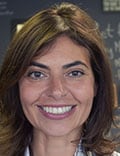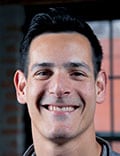As the demand for documentary films skyrockets, physicians are using the visual medium to raise awareness about healthcare issues, improve care, and tell their personal stories.
If you think your medical work leaves little room for curious hobbies and interesting side gigs, imagine directing a film between hospital shifts or clinic hours. Some doctors are out there doing it right now, letting personal stories and the hope of large audience reach motivate them to squeeze passion projects out of limited time and resources. For them, filmmaking speaks as loudly as medicine does.
It helps that we might be living in a golden age of documentary filmmaking. Documentary was the fastest-growing genre on streaming platforms in 2020, according to data released by Parrot Analytics. The same report found that between January 2018 and March 2021, the number of documentary series increased by 63%, and the demand soared by 142%.
The skyrocketing desire for documentary films point to the powerful things that the platform can achieve: uncovering hidden injustices, advocating for underrepresented groups, and motivating viewers to affect change — particularly when the lenses are focused on important issues in healthcare.
Medscape spoke with three documentary filmmakers, two practicing MDs and one inspired by a noted MD's work, about how their films engage audiences and act as vehicles for change in the medical field.
Where Medicine, Activism, and Film Unite

Delaney Ruston, MD
Delaney Ruston, MD, grew up in a low-income household in Berkeley, California. Her father, who had schizophrenia, was in and out of her life, and her mother rented out rooms in the home to help pay the bills. One tenant was a documentary filmmaker, and Ruston subsequently took an interest in film and social activism.
"I was getting healthcare at a free clinic, and early on, I was very much drawn to the power of stories and how they make a difference," she says. "But the connection between the two didn't really coalesce in my brain until I was at medical school at Stanford."
That's when the tech revolution made video cameras affordable and accessible. Anyone could make a film, including Ruston, who bought a camera and started talking to any willing participant on the street.
During her internal medicine residency at UC San Francisco, Ruston began taking filmmaking classes around the city. When it came time for her to complete a required report and presentation at the end of her residency, she pitched a documentary instead. The administration initially balked but eventually came around, and Ruston produced her first short documentary, If She Knew (1998).
The film follows the story of an older patient whose adult daughter requests that Ruston not tell her mother that her cancer has returned.
"In all my medical education, we had never really talked about the ethics of withholding bad news," Ruston says. She believes that films like hers, through novelty and emotion, can help physicians understand complex situations and how to best handle them.
Ruston has gone on to launch her own production company, MyDoc Productions, and create a number of award-winning documentaries, all while practicing medicine. These films include Unlisted (2009), which depicts her personal struggle to bring her paranoid schizophrenic father back into her life, and Screenagers: Growing Up in the Digital Age, a film examining how we can empower children to best navigate the digital world. She's currently working on her third installment, Screenagers Under the Influence, which explores solutions around teens and substances.
"The best way to describe my work is personal documentaries that have science and solutions interwoven in the stories," she says. "We're not about scare tactics. We're about bringing communities together for discussions on solutions."
A Personal Journey With a Big Impact

Saray Stancic, MD
Saray Stancic, MD, an infectious disease physician, echoes Ruston's aim to make films that are solution focused. Stancic is the producer of Code Blue (2019), a feature-length documentary that reveals the insufficiencies of our current approach to medicine and offers the practice of lifestyle medicine as a commonsense solution.
For Stancic, the seeds of the film were planted back in 2003 when she came across a compelling article about multiple sclerosis and diet. Stancic had been diagnosed with multiple sclerosis in 1995 at age 28 years, and the article led her to review the medical literature on how diet plays a role in both disease prevention and management. Stancic made a number of lifestyle modifications, started feeling better, and was able to come off her medications.
"I started wondering why we aren't talking about important lifestyle changes in contemporary clinical medicine and why is it not part of our education," Stancic recalls. "Diet is the most important factor in regard to our future, and we don't learn about it."
Stancic began to lecture across the country, hoping to empower patients and encourage physicians to become more informed about lifestyle medicine. And then, her own patients told her about Forks Over Knives (2011), a documentary that examines how a plant-based diet can prevent chronic diseases. When Stancic saw how much the documentary inspired people to change their habits, she realized that film would allow her to reach an even larger audience.
Stancic knew next to nothing about filmmaking, but she knew she had an important story to tell: her own. She and a filmmaker friend bought a camera, made a trailer, launched a Kickstarter campaign that would raise more than $30,000, and hit the road.
The final film includes Stancic's personal journey incorporating lifestyle medicine into clinical practice and the stories of other successful individuals and organizations doing this same kind of work. It also shows chronically ill patients implementing lifestyle changes and the positive impact on their lives.
"It's a film with a happy ending — and everyone wants that," says Stancic, in both the film and life. "My hope for each and every one of us is, on that last day in our life, that we spend a beautiful day with our family, our friends, clear of mind, and then go to bed and pass away peacefully in our sleep and with dignity. I've seen so much of the opposite of that in my practice of medicine."
An MD's Legacy Lives On

Mike Eisenberg
Filmmaker Mike Eisenberg has never practiced medicine, yet one doctor in particular inspired him to devote years of his life promoting patient safety in healthcare. His father, John Eisenberg, MD, was a pioneer in the patient safety movement, serving as director for the Agency for Healthcare Research and Quality (AHRQ) from 1997 until his death in 2002. He was 55 years old, and Mike was just 17 years old.
Thirteen years later, Mike Eisenberg's team at Tall Tale Productions was looking for their next project. "We'd been wanting to do something that could have an impact in a positive way," he says. "Traditionally, a lot of documentaries are trying to expose a wrong and inspire people to make it right, but we like to tell stories about the people who are doing the work — who are making the wrong, right — and using that to inspire other people to follow in that same path toward change."
That's when Eisenberg was reminded that The Institute of Medicine's "To Err Is Human: Building a Safer Health System" report from 1999, which famously publicized the issue of patient safety and stimulated research by the AHRQ, was nearing its 20-year publication anniversary. This spawned a preproduction research phase where Eisenberg called people who had worked with his father and asked them how far the medical field had come in the interim.
"It was pretty easy to see that it hasn't come far enough," he says. "The documentary became a mission to uncover where we are as a country when it comes to patient safety, and who is continuing to work to fix it."
Eisenberg's team initially thought the production of the film would be small, focusing on how the AHRQ is involved in every part of the country's quality of care. But it evolved into a feature about patient safety in general.
Eisenberg also didn't think it would make much of an impact. "But then we realized that we were making a film that can influence the people in healthcare to want to do better and to want to keep working hard on this issue."
Once they came to that conclusion, their focus shifted. Though the film explores the patient's role in healthcare, Eisenberg still wanted to appeal to the general public. "But some of the most neglected audience members are the ones in healthcare who feel like they're constantly being attacked by the negative stories," he says. "If we can focus less on the terrible things that can happen and more on the great things that are happening, we might be able to make a bigger difference."
To Err Is Human released in 2019 and has since been screened over 225 times across 38 states and 11 countries, all of which included organized events with Q&As and discussions afterward.
"Those conversations have spawned a lot of change," says Eisenberg. "You could see in the moment that people were listening, minds were opening, and hospitals were willing to find new ways to engage the patients in the patient safety process."
Eisenberg notes how film has the ability to cut through data, putting a face and name behind the people who have been affected, be it physicians or patients.
"There are some topics that are better communicated through visual mediums where you can share an emotional story," Eisenberg says. "When you're talking about research or looking at the results of a study that involved 300 people, it's hard to remember that each of those people has a story to tell."
Personal Stories, Universal Experiences
Each of these films began with the filmmaker's personal experience but also expanded much further. "What I've learned in these 20-plus years of making documentaries is that the more personal a story is, the more universal it is," Ruston says. "I think that's what the magic and power of storytelling is, and for me, it's that personal element that continues to motivate the work that I do."
It's also the advice that she gives to anyone in healthcare with an interest in documentary filmmaking. "Your audience might be one person or five people," says Ruston, "but the gift is being able to share our stories."
Andrea Goto is a frequent contributor to Medscape. See her previous work here and here.
For more news, follow Medscape on Facebook, Twitter, Instagram, and YouTube
Credits:
Lead Image: Stock/Getty Images
Image 1: Laura Levenfield
Image 2: Tall Tale Productions
Image 3: Emily Pellechia
Medscape Medical News © 2023 WebMD, LLC
Any views expressed above are the author's own and do not necessarily reflect the views of WebMD or Medscape.
Cite this: Docs Making Docs: How Filmmaker MDs Tackle Big Health Issues - Medscape - Jun 22, 2023.










Comments